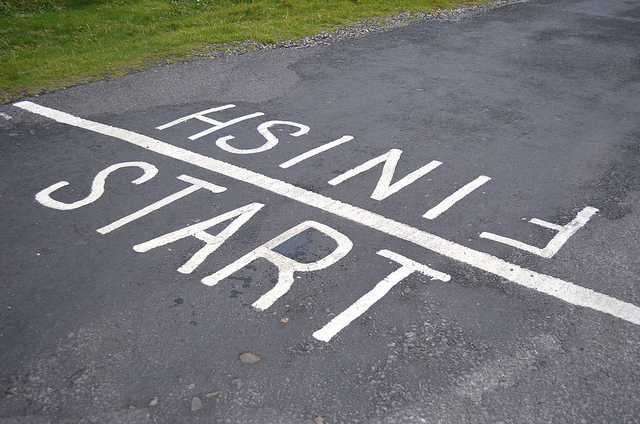How to Finish What You Start
By Ali Luke
May 9, 2010 • Fact checked by Dumb Little Man

Do you have a whole bunch of half-finished projects gathering dust?
Perhaps it's that fitness routine which you swiftly abandoned (along with all the accompanying equipment). Maybe it's a craft project which has been taken up space for months. You might have musical instruments which you never learned to play, college courses left unfinished, websites half-created, a novel that you started writing and never finished.
I used to be great at starting things, and really bad at following through. Over the years, I've learned to get better at finishing what I start.
Sometimes, you'll have a great idea for some new endeavor. Maybe you want to:
- Learn to play the trombone
- Take up fencing
- Become fluent in French
… and so on. Your interest might have been sparked by something you read, or by a movie you watched, or a friend who's passionate about a particular hobby.
Before you run out and buy a ton of stuff, and before you sign up for evening classes or dedicate every weekend to this, give yourself some time to figure out if it's just a whim. However keen you feel right now, wait a few weeks. Sometimes, an idea which seemed great at the time just doesn't last.
Step 2: Make a Firm Commitment
If you are going to start something new and finish it, you need to really commit to it. I wouldn't recommend spending large amounts of money (though that definitely can make you feel a stronger attachment to something) – instead, I'd suggest that you block out some time to spend on this project on a regular basis.
That might mean that you have to take a hard look at your diary and get rid of some other activities. You're not suddenly going to find a spare hour or two every day … you need to think about what you're already spending your time on.
Step 3: Keep Track of Progress
It's easy to start off keen, spending a diligent half-hour a day on your project for a week or two … only to hit a busy patch in life. I'm sure you've had projects which got put aside “just for now”, only for months to go by without any progress at all.
It's easy to lose momentum when you're working on lots of different things. If I've got a project which I really want to move forwards on, I find that the best way is to keep track of the progress I'm making.
There are all sorts of ways to keep track, depending on your project. Here are some possibilities:
- Keep a food diary, a spending log or a gratitude journal to focus your attention on a particular goal in your life.
- Use an online tool like Joe's Goals to tick off the days when you accomplished a particular task (e.g. going for a jog)
- Ask a friend to keep you accountable by having a weekly check-up session
- Write a checklist for your project and tick off tasks as you complete them. Make a note in your diary to review the checklist every week (or whatever interval suits you).
Step 4: Have an End in Sight
It might seem like a silly point, but if you're going to finish what you start, you need to know what “finished” looks like!
Some projects have a natural end point – but many don't. For example, when have you “finished” with a diet? When have you “finished” learning to play the piano?
If your goal is to “write a book“, be clear whether you mean “write a draft” or “finish it to the best standard I can” or “get it published”. These are all different goals and different endpoints. If you're doing your first NaNoWriMo (National Novel Writing Month, every November), then just finishing a 50,000 word draft is a great achievement. If you're aiming for a career as a professional writer, then you'll be looking at an end point of publication.
You might find that your goal doesn't have a finish line at all. If you're getting fit, you don't suddenly achieve fitness and then stop! With goals like this, set yourself some targets to keep you going. You might want to run a half-marathon in two years' time, and a marathon the year after that. You might aim to bench-press a certain amount of weight.
Finally … if you have lots of half-done projects, don't feel bad about letting some of them go. That might mean throwing out old materials, selling those books you'll never read, or formally resigning from that course. Quitting is a way to finish a project – and it can free you up to take on something new.
 |
Written on 5/09/2010 by Ali Hale. Ali writes a blog, Aliventures, about leading a productive and purposeful life (get the RSS feed here). As well as blogging, she writes fiction, and is studying for an MA in Creative Writing. | Photo Credit: cole24 |


